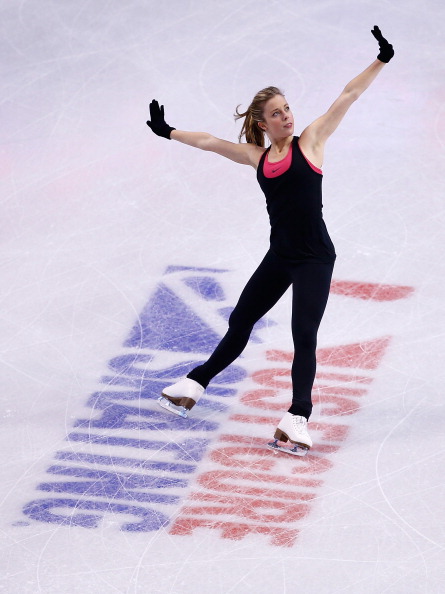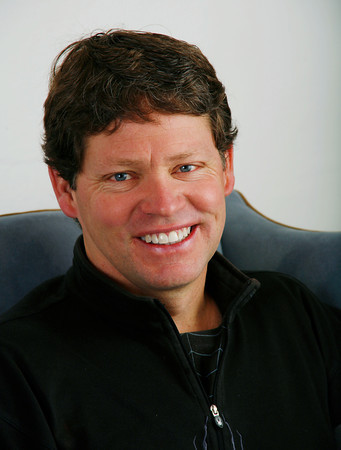There are lots of ways to look at the performance of the U.S. team at the just-concluded Sochi 2014 Winter Games. The American team won 28 medals, nine gold.
The optimist says that’s great.
The realist says the U.S. not only could have done better but almost surely should have. The International Olympic Committee added 12 new events to the 2014 program, mostly in the so-called action sports, and in those 12 Americans won nine medals. So — what happened around so much of the rest of the team?
Starting with the optimist’s view:
Sochi marked the best U.S. performance at a non-North American Winter Games. Those 28 medals were second only to the host Russians, who won the overall count with 33. Nine tied the mark set in Vancouver four years ago for most-ever gold medals at a non-domestic Games. The U.S. team won 10 in Salt Lake City in 2002.
Mikaela Shiffrin, just 18, won the first gold medal in women’s slalom skiing in 42 years. Ted Ligety won the men’s giant slalom under extraordinary pressure.
The two-man bobsled team, Steve Holcomb and Steve Langton, won the first medal of any color — in this instance, bronze — in 62 years. Holcomb would later drive the four-man sled to another bronze.
Joss Christensen, Gus Kenworthy and Nick Goepper swept the Olympic debut of slopestyle skiing. That marked only the third time U.S. men have swept the podium at the Winter Games. The prior occasions: figure skating 1956, snowboard halfpipe 2002.
Alan Ashley, the U.S. Olympic Committee’s chief of sport performance, declared last Saturday at a news conference at the Sochi 2014 main press center that, overall, the American team had done a “fantastic job.”
The realist’s extrapolation:
Starting from the exact same place: 28 medals, nine golds, and comparing that with Vancouver: 37 medals, nine golds.
Should going to Russia instead of just across the border to Canada make so much difference?
If before the Games Americans would have been a known lock for nine medals in the 12 new events, experts in some circles would not have found it unreasonable to have predicted 40 medals overall for Team USA.
How, then, to appropriately assess 28?
The entire U.S. Olympic Winter team did not win as many medals as the U.S. track and field team did in London in 2012. The track team won 29.
For that matter, the U.S. 2012 swim team won 31.
Overall, there were 98 medal events at the Sochi Games. One potentially very useful metric is how many medal opportunities there were — that is, available spots for Americans to earn a medal.
It’s not a simple case of multiplying 98 times three (the number of medals per event). In some events there might only be one American available to earn a medal; in others, several.
Bottom-line: there were, by the end of the Games, 255 medal opportunities. Again, American athletes earned 28 medals. That’s a return rate of 10.98 percent.
Perhaps this, then, might offer the best measure of the 2014 U.S. team’s performance: is a return rate of 10.98 percent good, or can it — or better yet, ought to be — improved upon?
For comparison, the London track team’s return rate: 29 of 143, or 20.3 percent.
The gold standard is the 2012 U.S. swim team: 31 of 62, or 50 percent.
Of the nine gold medals, five came from new events; four from events that had been on the program before 2014.
As pointed out by Law Murray, a graduate student at the Annenberg journalism school at the University of Southern California who was a credentialed reporter at the Games, all nine of the gold medalists are under age 30.
Much of the pre-Games media attention focused on veterans such as snowboarder Shaun White and speedskater Shani Davis. Neither medaled. As Murray also noted, of the 20 individual medalists, 14 won medals for the first time in Sochi. Only the 20 new medalists from the 2002 Salt Lake Games exceeded that number.
The USOC looks at all these kinds of things, and more. It has two fundamental priorities. One, win medals. Two, inspire the American public. The inspiring depends on the medals. This is the mission. And the mission, so it’s clearly understood, can involve some serious money.
Strictly speaking, the USOC does not, in the manner of a traditional American business, seek ROI, or return on investment. But — when you are laying out $2,724,345 to US Speedskating, as the USOC did in 2012, the year for which disbursements are most recently available, according to the USOC’s tax returns, and the long-track team goes oh-for-Sochi, it’s reasonable to launch a far-reaching inquiry.
As first pointed out by Gary D’Amato of the Wisconsin Journal-Sentinel, the U.S. long-track team’s medal count since 2002 has gone like this: eight, seven, four, zero. That belies an institutional problem that, finally, exploded into the public domain in 2014.
USOC chief executive Scott Blackmun said last Saturday, “If you look at the speedskating results, we weren’t the only nation that got smoked,” the Dutch taking a torch to the rest of the world.
Echoed Ashley: “Our job now is to say, ‘What went wrong, what went right and how do we improve?’ “
Another program that figures to invite scrutiny: the figure skaters won a bronze in the new team event, true, but left Sochi without a medal in men’s or ladies’ singles for the first time since 1936. That is, in a word, unacceptable.
The USOC, according to its tax statements, gave the U.S. Figure Skating Assn. $842,486 in 2012; $866,966 in 2011; $1,023,025 in 2010.
The United States produced the men’s gold medalist in 2010, the women’s silver medalist in 2006 and gold medalist in 2002. Now?
The last U.S. woman to medal at an Olympics or world championships — in an Olympic year, the worlds come after a Games — is Kimmie Meissner, who won the world championship in 2006.
Since 2010, no U.S. man has finished higher than seventh at the Olympics or the worlds.
Figure skating’s scoring system is opaque, surely. But last Thursday, on a night when Americans Gracie Gold and Ashley Wagner were talked up big-time by many of figure skating’s most traditional U.S. supporters — Gold would ultimately would finish fourth, Wagner seventh — the TV ratings underscored the challenge:
The ladies’ free skate, traditionally a highlight of the Games, attracted 20.3 million viewers, as Russia’s Adelina Sotnikova won gold over South Korea’s Yuna Kim amid controversy. The comparable night in Torino, when American Sasha Cohen won silver, drew 25.7 million. That is 5.4 million fewer people, a drop of 21 percent.
The U.S. men’s hockey team came to Sochi proclaiming “gold or bust,” beat the Russians in one of the Games’ most dramatic moments and then, in a 5-0 bronze-medal loss to Finland, proved they really meant it — it really was gold or time to go into the tank. “We didn’t show up. We let our country down. That’s it,” forward Max Pacioretty was quoted as saying in the Los Angeles Times.
There were high hopes this might be the breakthrough year for both cross-country skiing (no medals since 1976) and biathlon (no medals, ever). Didn’t happen.
It’s easy to see how the U.S. team could have more than made up the medals it won four years ago:
Lindsey Vonn did not ski in Sochi because she was hurt. In 2010, she won two.
The Nordic combined team, altogether, won four in 2010. In Sochi, zero.
The long-track team, in Vancouver, four. In Sochi, zero.
Add those together and you get 10. Add 10 to 28 and 38 is almost the 40 that figured to come with the new additions to the program.
Of course, sports — particularly at the Olympics — can often prove a matter of woulda, coulda, shoulda.
For every medal the United States didn’t win, there’s one it surprisingly did — such as Andrew Weibrecht’s silver in the super-G, a reprise of his 2010 bronze in the same event.
Some would suggest that the move to 28 from 37 is also tied to the increasing globalization of the Winter Games. In the men’s snowboard halfpipe, for instance, traditionally the province of White and other Americans, no U.S. man medaled; two Japanese and a Swiss rocked the podium.
Then again, in Vancouver, 26 national Olympic committees won medals. In Sochi, exactly the same number, 26 NOCs, won medals.
“Things don’t always shake out the way you want to,” Ashley, ever diplomatic, said last Saturday. “The surprises are sometimes way more exciting than the disappointments.”












